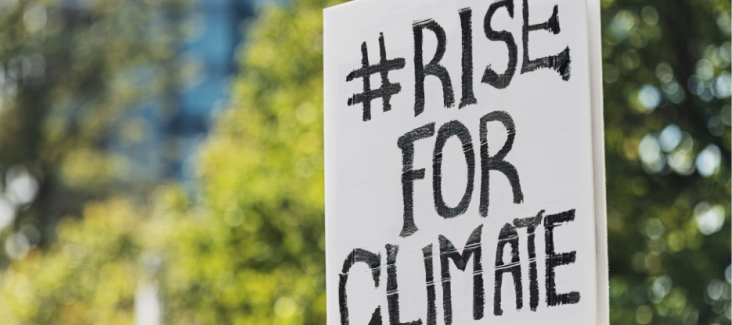All activists burn for the issue. But the mood is bleak, and not just because of the rain. "I'm not sure we will be able to achieve this," one activist tells me when we take a break. I understand. The signature quorum for the second stage of the referendum in Berlin is high: seven percent of eligible voters must agree. Three months later, the unbelievable is reality: jubilation! On Nov. 14, 2022, 261,968 signatures had been submitted and it was clear: the climate referendum for Berlin was coming.
It came and it failed. The people of Berlin decided a few weeks ago on the 26th of March, but ultimately nothing is determined. In the referendum, 51% voted in favor of the climate neutrality of the capital by 2030, 49% against it. A narrow outcome, but an outcome nonetheless for the initiative’s proposal that would have rewritten the Berlin Climate Protection and Energy Transition Act. And yet the decision is considered a failure.
That's because Berlin has an approval quorum of 25 percent. Unlike with elections, the majority vote in referendums is only valid if at least 25 percent of all eligible voters vote yes. The fewer people that participate, the lower the chance of clearing this hurdle. For a successful referendum, at least 608,000 people would have had to vote yes – the initiative however achieved 442,028 votes.
Berlin actually had the chance to combine the referendum vote with an election (the federal state’s repeat election in February) – and missed it. The city didn't have the courage to do so. After the 2021 election had failed due to its organization and now had to be repeated, everything had to be right this time – and an additional ballot stood to become a risk. This was the official line of reasoning.
This meant that the vote was ill-fated from the outset: When a referendum is combined with an election, the hurdle of approval is no longer so relevant, since many people will be at the ballot boxes anyway due to the elections. We know from repeated past experiences: In referendums that do not coincide with an election, the hurdle of approval leads to the opposite of what it hopes to achieve – it creates not more, but less participation. There is another way though: in other German states, such as Bavaria and Saxony, there are no such Quorum-clauses.
Incidentally, the referendum would have been successful in five German states: in Saxony and Bavaria (no quorum), Schleswig-Holstein, North Rhine-Westphalia (15 percent approval quorum), and Rhineland-Palatinate (25 percent participation quorum). In three other states it would have failed by an even more narrow margin (20 percent approval quorum in Hamburg, Bremen and Baden-Württemberg).
Overall, more Berliners voted in favor of the referendum than voted for one specific one of the political parties in Berlin. The turnout for a referendum without an election was also very good. Only the first referendum on the continued operation of Tempelhof Airport had higher turnout, at 36.1%. The climate referendum had an above-average turnout of 35.8%. And yet, political decision-makers, the media and opinion-makers are now overflowing with categorizations: the majority of those who did not vote were against the proposed legislation and therefore stayed at home. The project was purportedly too ambitious. The initiative should not have created a referendum on an abstract goal, but on concrete measures.
In the referendum – unlike elections – there was no post-election survey, so we simply don't know why people didn't go to the polls, or why they voted yes or no. We at Mehr Demokratie are now making up for that: We are commissioning a representative survey to ask non-voters, yes- and no-voters for their reasons and motivations. The results will be published in the next few weeks.
The referendum thus only shows one thing clearly: the approval quorum creates an unclear result after a referendum and should be abolished. Election and voting laws have the task of producing the clearest possible results. Now we find ourselves in the avoidable situation where all parties interpret the result in their favor. Without the approval quorum, this would not have happened.
Success cannot be measured in numbers alone either: Never before has climate protection been discussed so intensively in Berlin as before the referendum - on the streets, at events, at home, at work, in the media... The Paris climate targets are binding. But how should these be implemented? Today, there are more Berliners who have understood how urgent climate protection is and who are willing to consider what truly effective climate protection should look like. All the more reason for politicians to look at the facts: Even if the referendum failed due to the quorum, the city should take the clear signal for more climate protection seriously.

